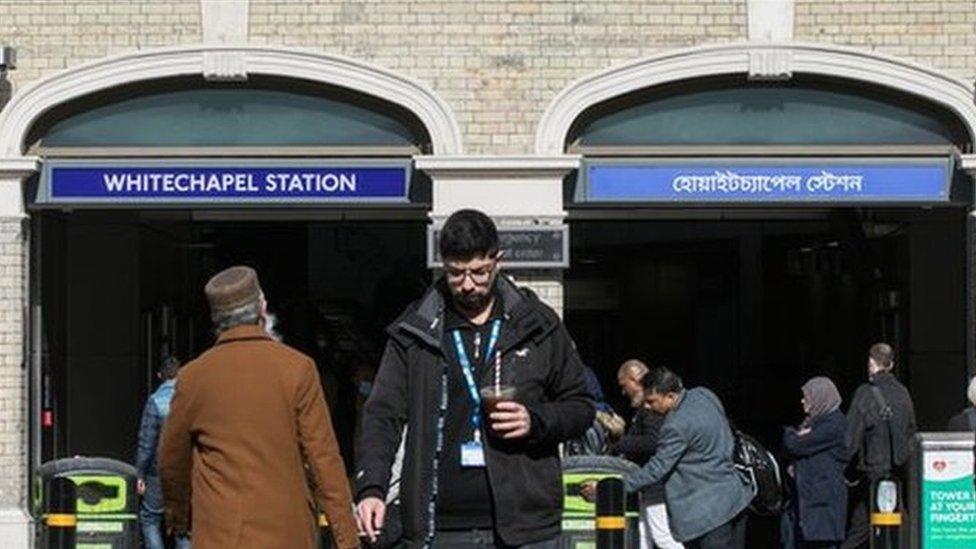'They beat me for six months without talking'
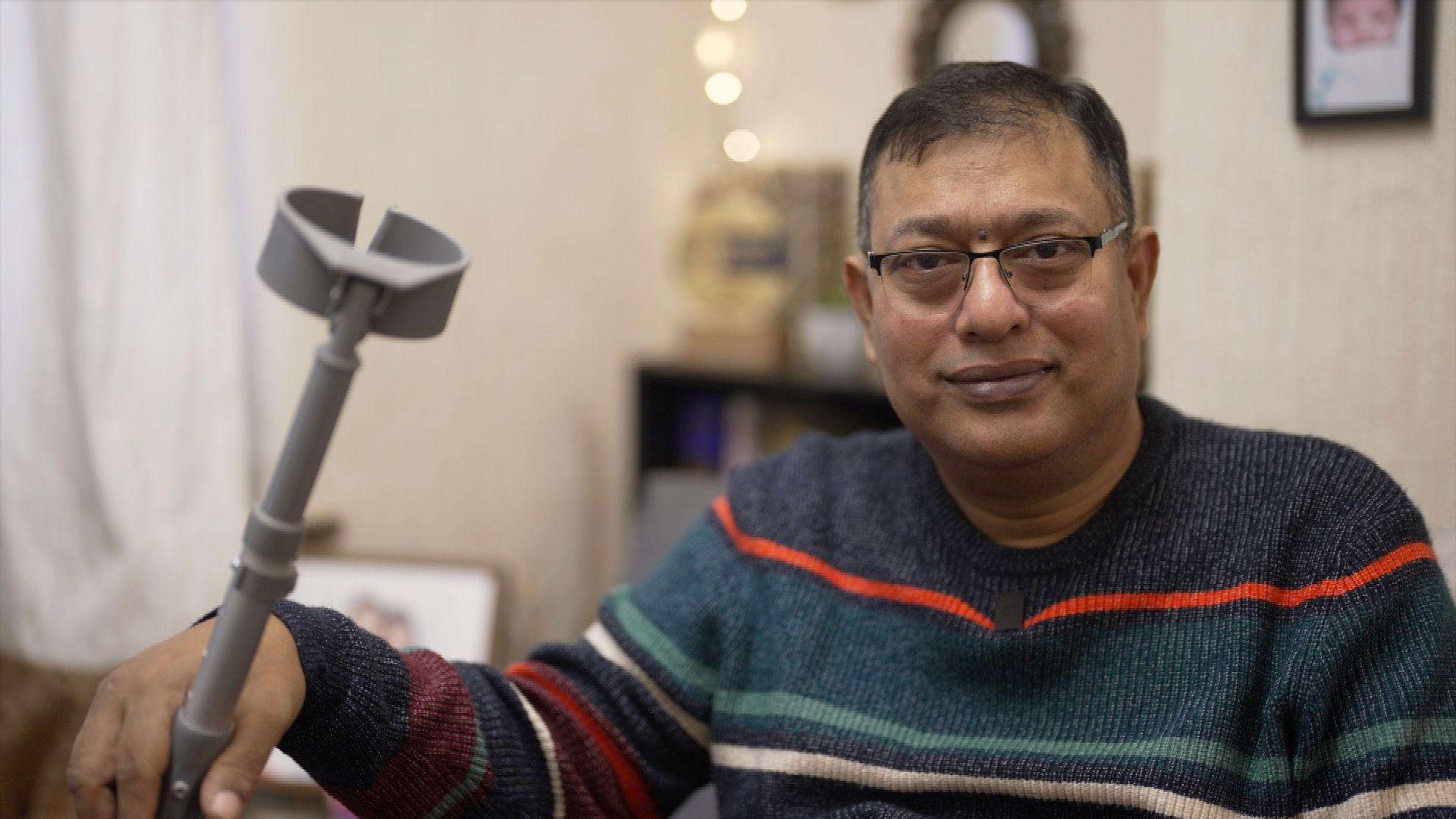
Moshiur Rahman says he was tortured in Bangladesh for several months and is still feeling the effects
- Published
Moshiur Rahman winces as he limps to the table, joining his wife and young son for afternoon tea in their east London apartment.
The pain in his leg joints serves as a daily reminder of the abuse he says he suffered because of his links to the main opposition party in Bangladesh.
Mr Rahman, who had moved to Barking from Bangladesh's capital city Dhaka, says he was seized at an airport and then tortured, while on what was supposed to be a short visit to his home country in 2015.
Bangladesh's Ministry of Foreign Affairs said it "vehemently" denied a role in any crackdowns of any party members.
Mr Rahman says he was blindfolded for days, strung from a ceiling with his hands tied, sporadically attacked and threatened with execution at a location unknown to him.
He said it was over his links over several years with the Bangladesh Nationalist Party (BNP).
"They beat me over my whole body for six months without talking," he says.
"The pain was unbearable. I thought they'd take me and kill me. And all I could think of was my son and daughter and wife will never know that I've been killed."
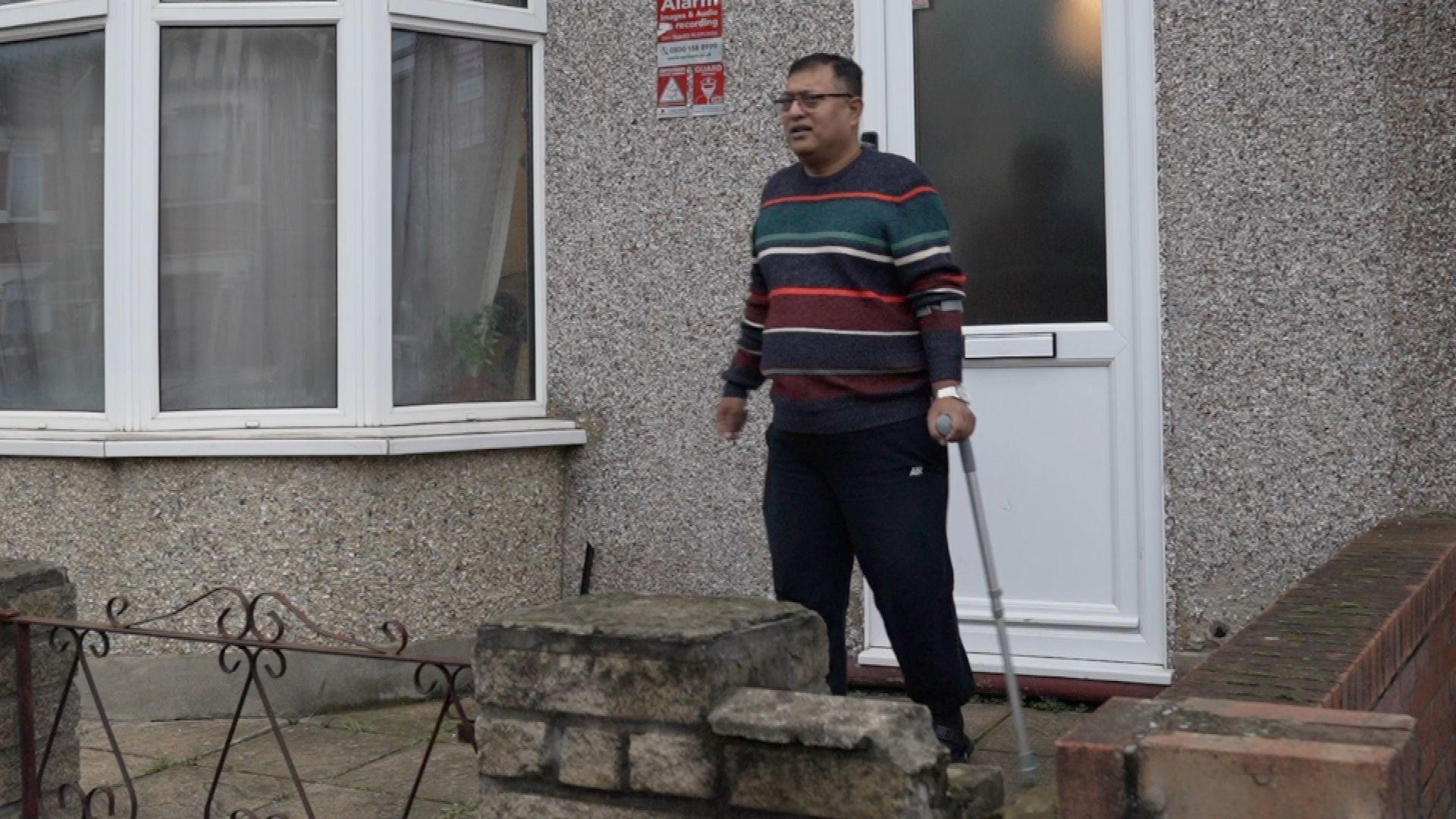
Mr Rahman says he struggles to walk due to the effects of being tortured for several months
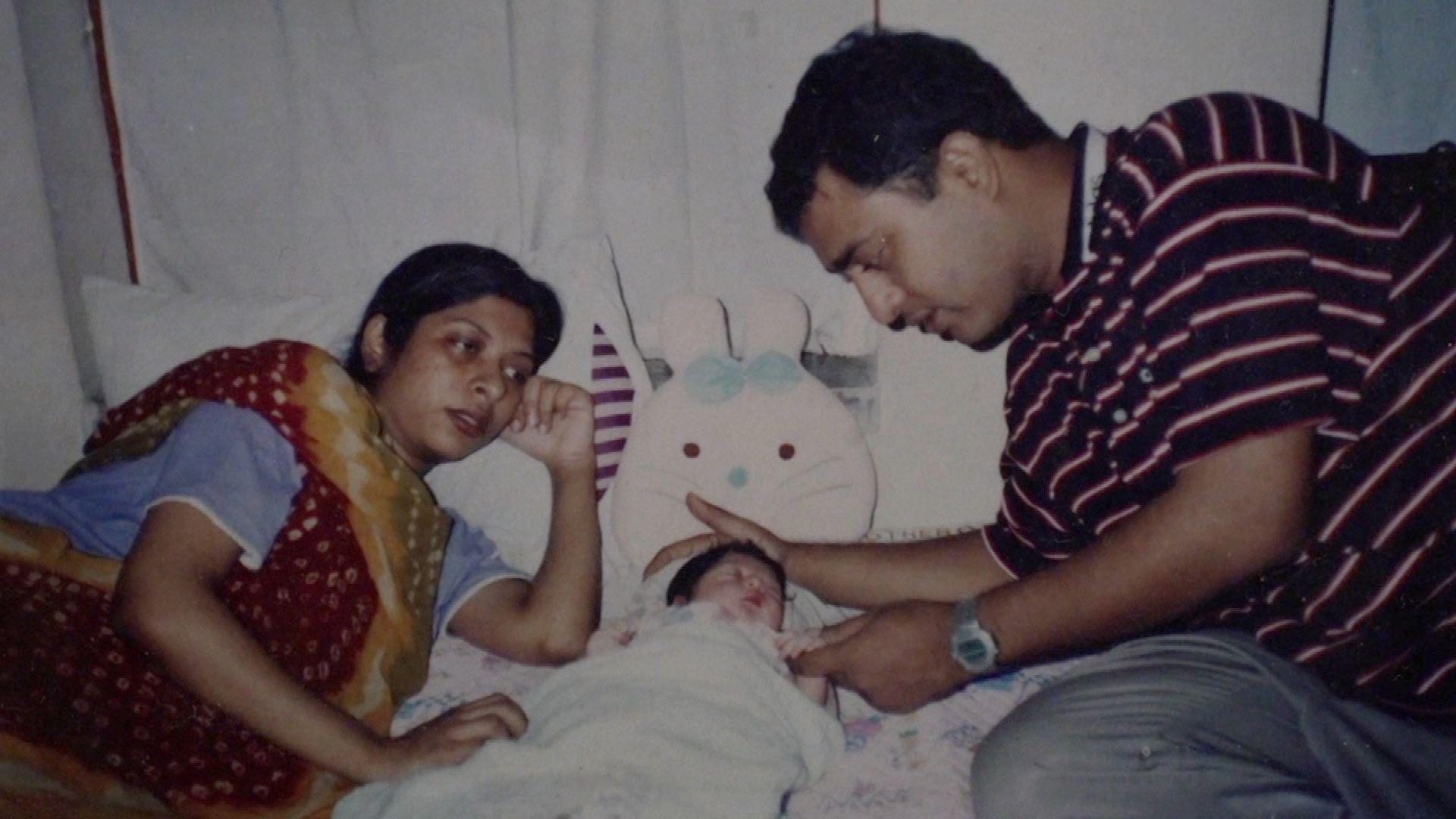
Moshiur, pictured with his wife and then baby daughter in Dhaka, moved from Bangladesh to London
Released under strict conditions, he was unable to leave Bangladesh until 2022, when he was eventually reunited with family in London after his wife successfully claimed asylum.
He remains unable to work, due to the pain he suffers.
The BBC has seen documentation from his local health trust outlining the health effects, mental and physical, of the abuse he suffered.
Bangladesh's Ministry of Foreign Affairs told BBC London it "vehemently denied" any systematic violence, torture or disappearances, adding that allegations of crackdowns on political party members were "thoroughly investigated".
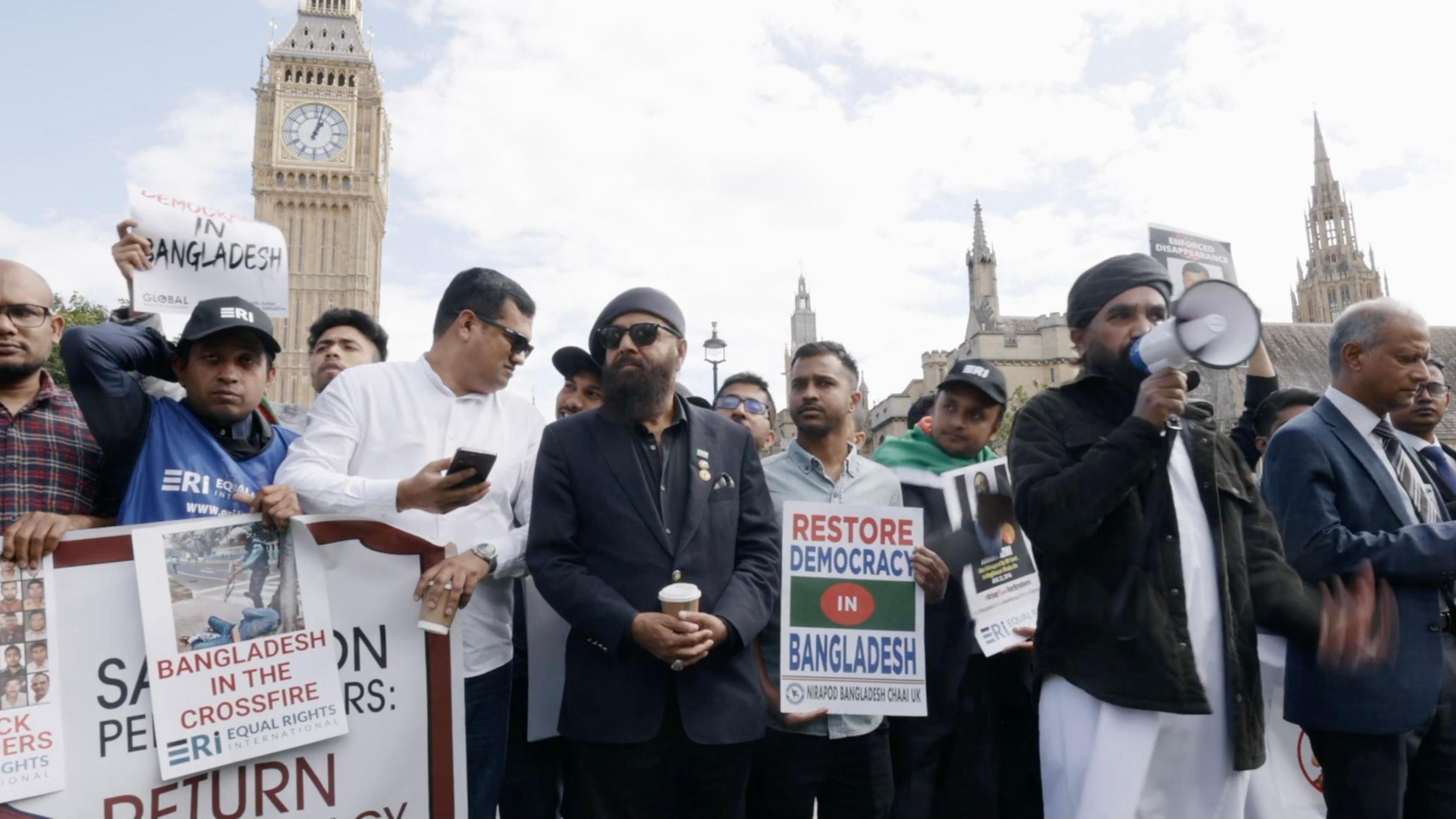
There have been recent protests in London against Sheikh Hasina's regime in Bangladesh
Prime Minister Sheikh Hasina, who first came to power in 2009, is now seeking a fourth term. She is the aunt of Labour MP for Hampstead and Kilburn Tulip Siddiq.
Some members of London's Bangladeshi community, the biggest in the UK, have attended anti-government demonstrations in the capital ahead of the elections on 7 January.
The demonstrations have focused on alleged intimidation and repression by Ms Hasina's government, amid the imprisonment of BNP leader Khaleda Zia on disputed charges and recent unrest in the country.
Ms Hasina has attributed the unrest to the BNP and its allies, blaming the violence on them.
With the main opposition parties boycotting the poll and many of their leaders jailed, Ms Hasina’s ruling Awami League is likely to be re-elected for a fourth straight parliamentary term.
Bangladesh's Ministry of Foreign Affairs told BBC London it was "fully committed to conducting free, fair, and transparent elections".
'I've not seen my kidnapped father in 11 years'
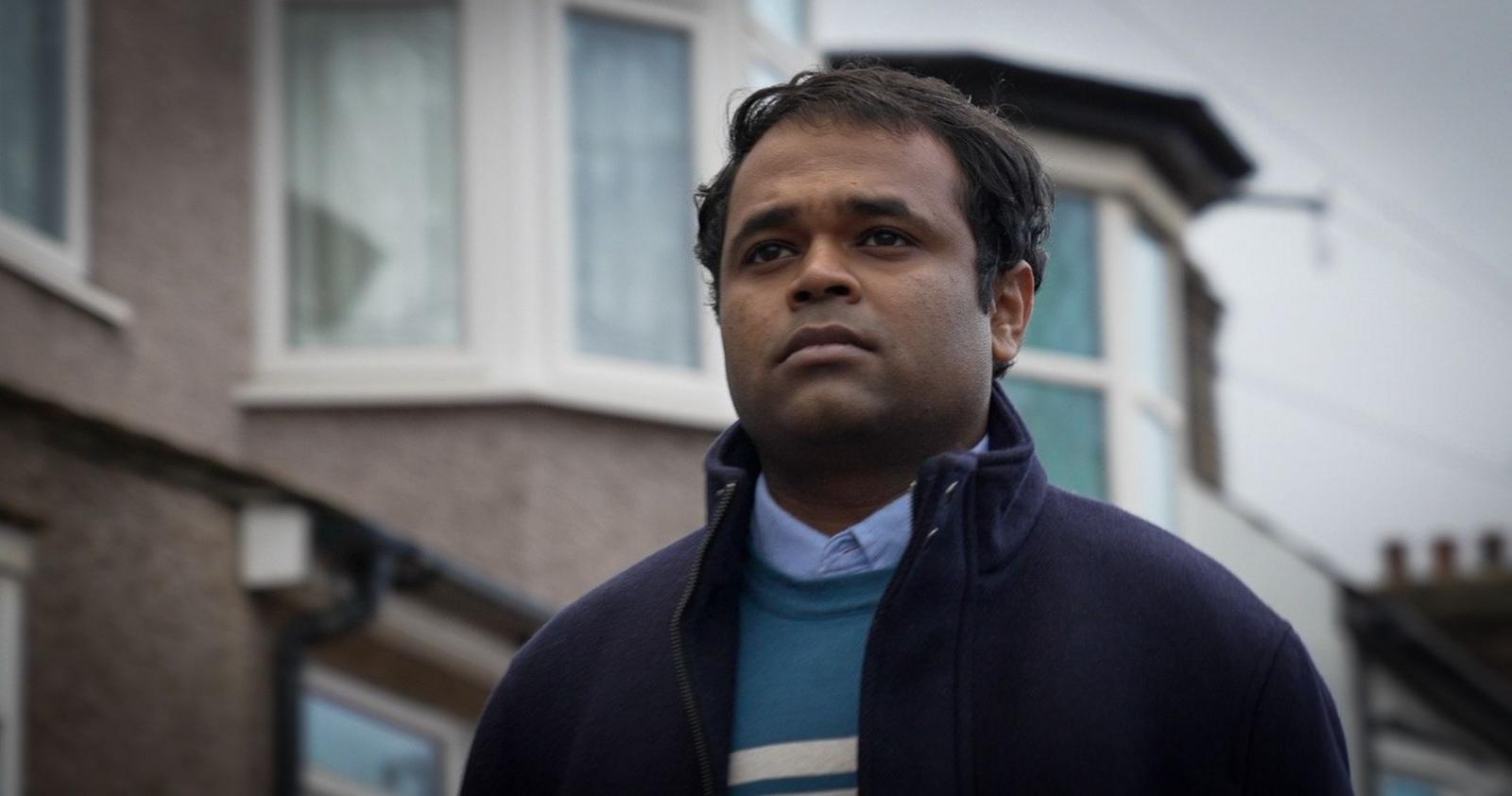
Abrar Elias's father was a prominent politician who disappeared without trace in 2012
For 30-year-old east London human rights lawyer Abrar Elias, the upcoming elections in Bangladesh reopen painful memories.
In 2012, when he was finishing high school in Dhaka, his father Ilias Ali, a prominent politician and organiser with BNP, disappeared along with his driver.
Mr Elias said he and his family had no doubt he was abducted because of his role in opposition politics in Bangladesh.
Several years later, Mr Elias moved to London to study law, hoping eventually to work as a barrister.
Now living in Pontoon Docks, he says the trauma never goes away.
"My mum still cries every day because she misses him so much," said Mr Elias.
"One day you have your father, who was at the core of your life, the next, no whereabouts of him. It's so heart-breaking."
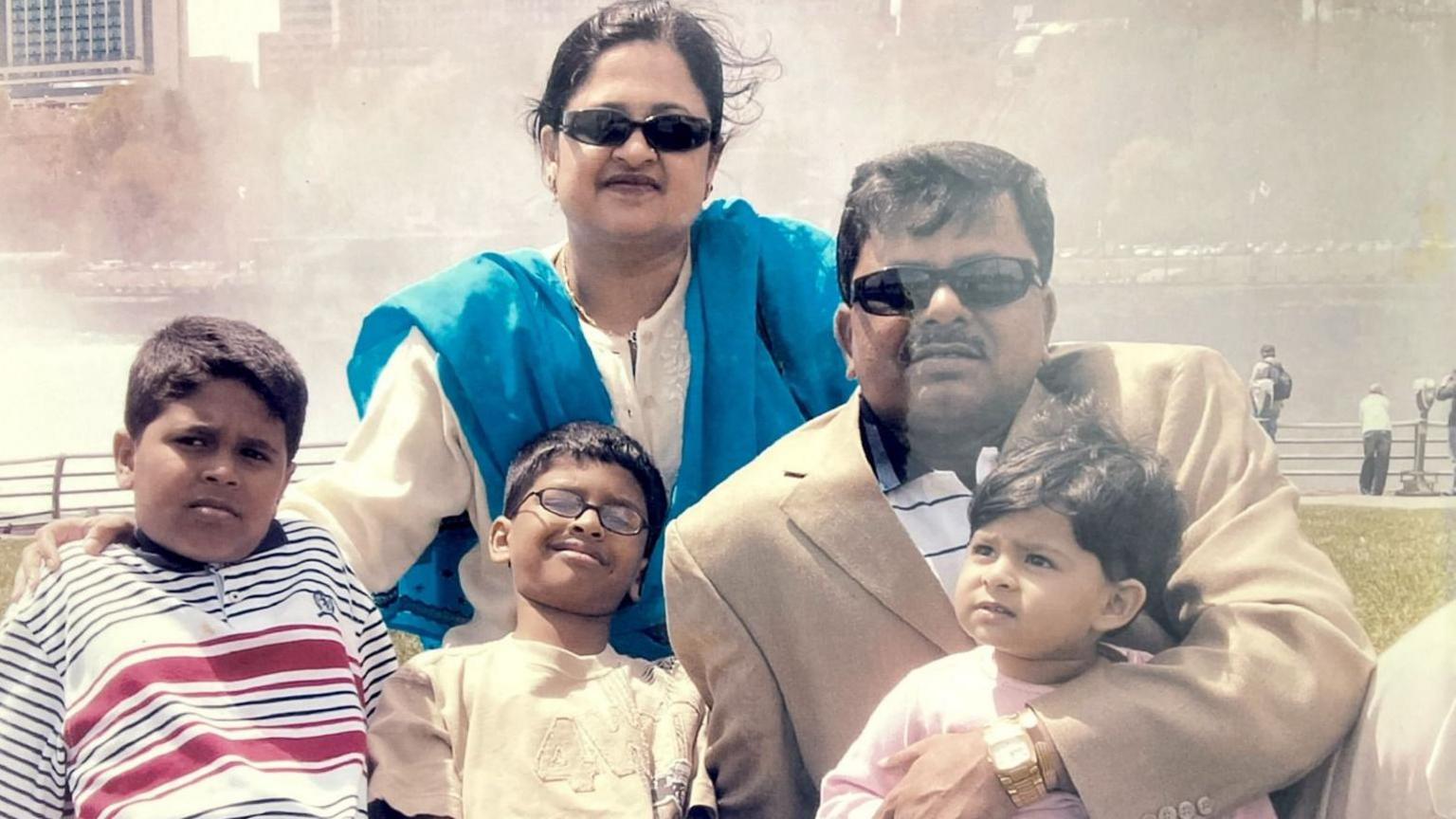
Mr Elias, pictured as a young boy on the left, remembers his politician father as a doting, loving dad who adored his family
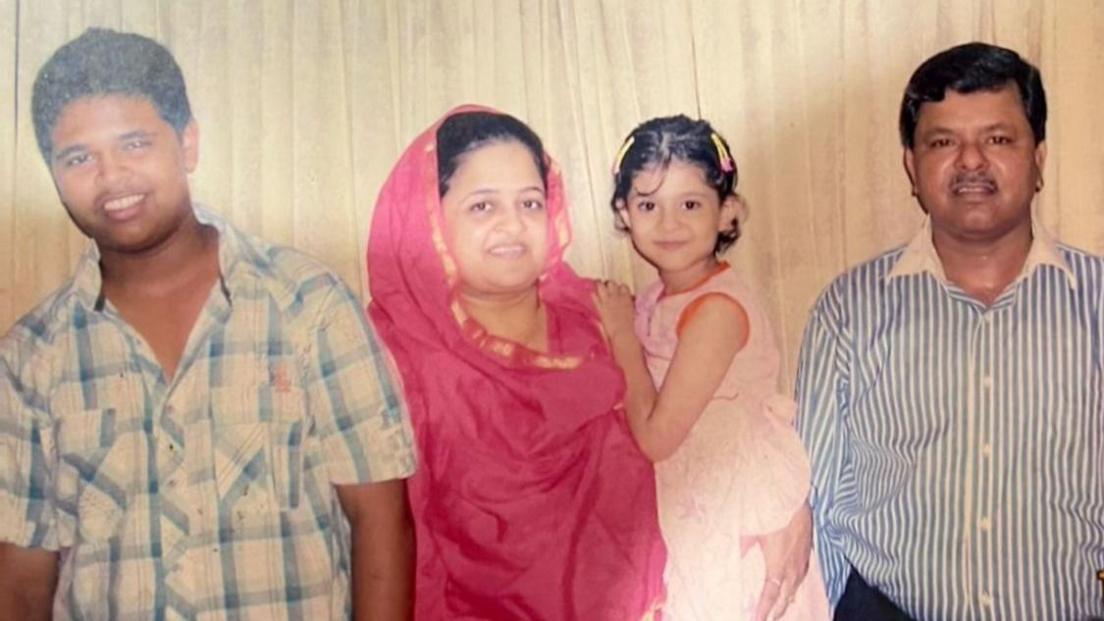
Mr Elias, left, last saw his politician father in 2012
Bangladesh's Ministry of Foreign Affairs told BBC London: "There is no single allegation of disappearance in the election time now.
"Earlier, when such allegations were raised, the government promptly had taken actions and proved them false."
'I still have nightmares'
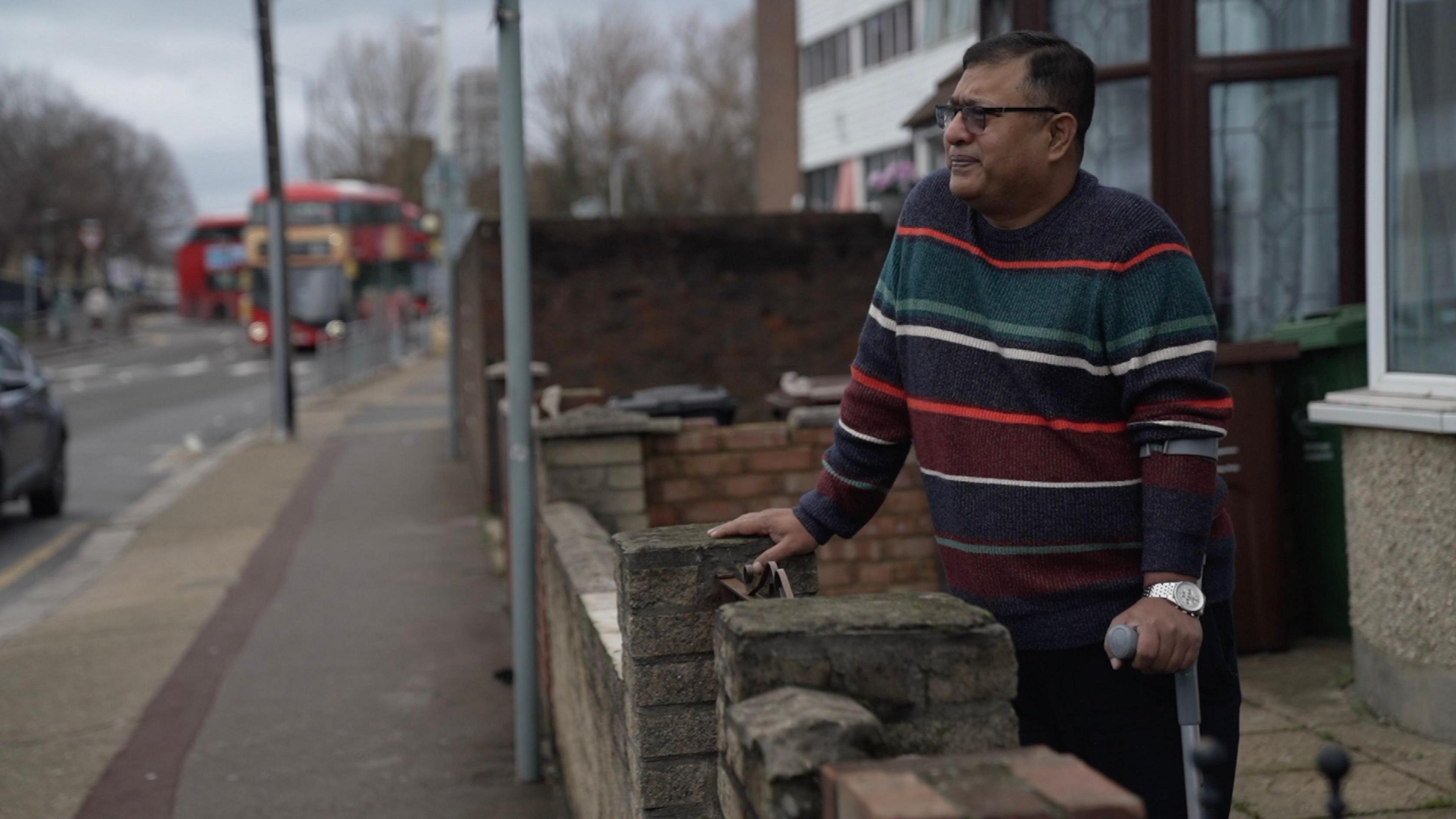
Mr Rahman says he is worried about the future
Sitting in their east London apartments, Mr Elias and Mr Rahman say they worry for their homeland.
"I still have nightmares about what they did to me, how they tortured me for no reason," says Mr Rahman.
"My body still needs to heal but those memories will never leave me. I wish I could speak freely, that they would listen, so what happened to me does not repeat for anyone else."
Related topics
- Published1 January 2024
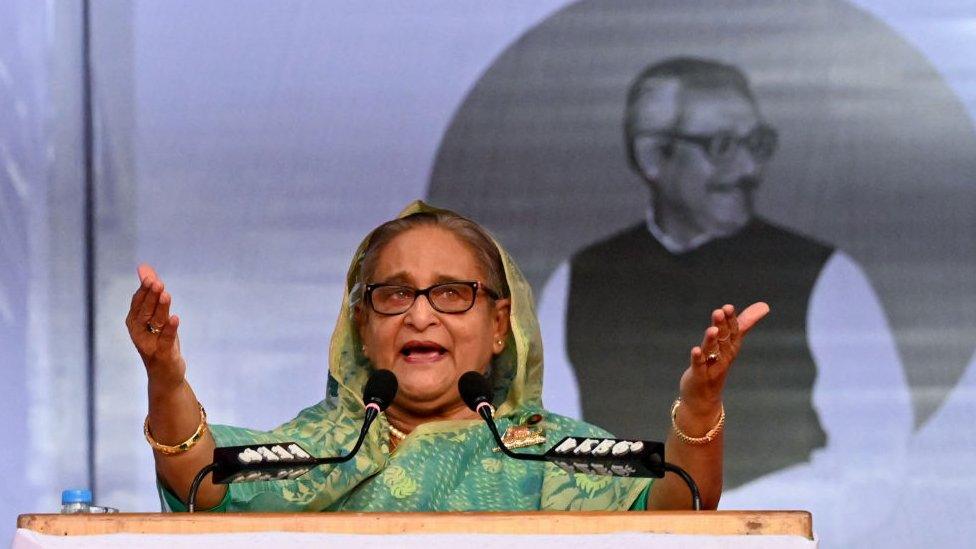
- Published1 November 2023
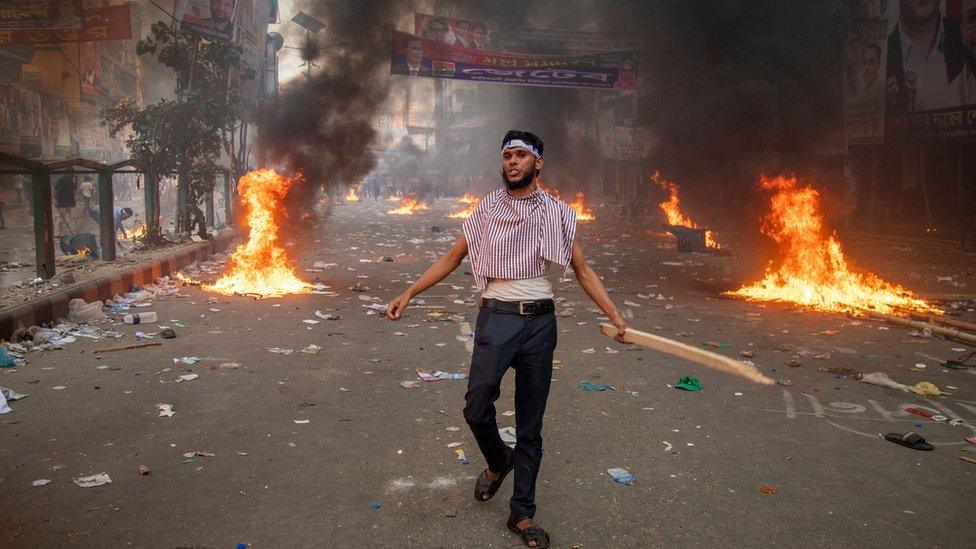
- Published31 October 2023
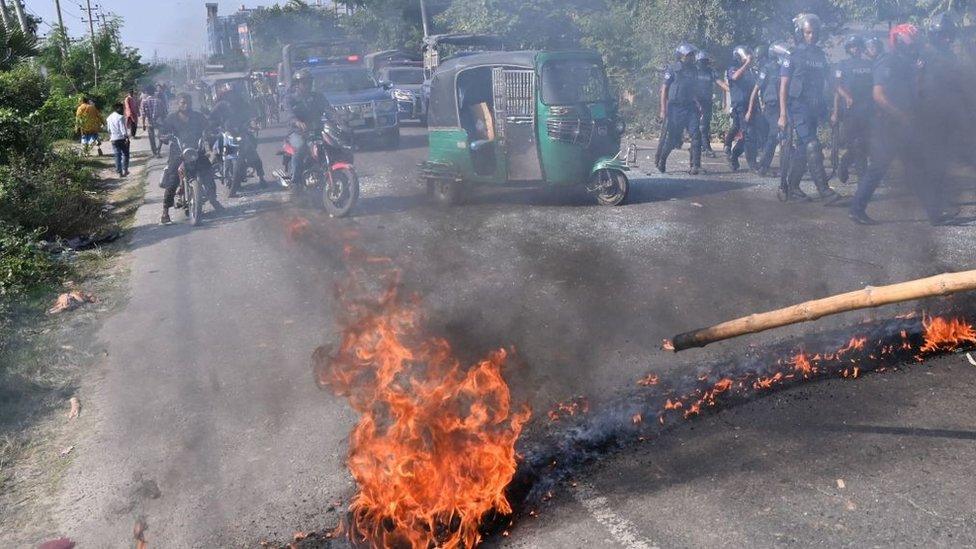
- Published16 March 2022
